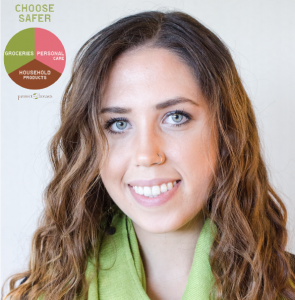Go Organic! How Choosing Organic Contributes to a Safer Future
 Happy New Year!
Happy New Year!
As 2018 begins, many people will vow to begin healthier lifestyles, whether that means exercising more, quitting smoking, or losing or gaining weight. We urge everyone to make a resolution to buy organic products, whether it’s your personal care products, household products, or food groceries. We promote organic items on our page quite frequently, as it is the best first step in avoiding certain chemicals and toxins that contribute to breast cancer. But what does organic have to do with breast cancer? Is organic food actually any different than non-organic food?
These were some huge questions I had when I began working with Protect Our Breasts. Due to some of the media, I wasn’t entirely convinced that organic was actually any better for me. But, as a science-based organization, we continuously update ourselves on current science and news articles, generously advised by a dedicated board of renowned scientists. We also go to biannual natural product conferences, where we attend sessions regarding the state of the organic industry. Additionally, the science team at Protect Our Breasts constantly reads new scientific journals and articles regarding the chemicals that contribute to breast cancer.
We support the Organic label not only because of the processes “organic” uses but, also what it prohibits from use. Traditional agricultural processes use more than 900 synthetic chemicals and 3000 other unknown materials used to grow food. Many pesticides have been studied for their impacts on human health, the environment and the ecosystem. However, some of them, which have been tested and found to be carcinogenic (such as atrazine), are still used widely in modern farming. If a product is certified USDA Organic, only 79 extensively reviewed materials are allowed to be used while growing these products.
There are hundreds of requirements of organic farming and, clearly, they are neither easy nor cheap steps for farmers to take. Until farmers are able to produce without the added burdens that pesticides remove, the price of organic food is going to continue to be high, simply because it costs more. Is it worth it to spend more money on organic food?
What the Organic label guarantees is that there are no synthetic pesticides, GMOs or antibiotics used and that the allowed substances have been extensively reviewed. There is no way to absolutely guarantee the absence of chemicals throughout manufacturing stages at this time, however the Organic label includes the supply chain, covering things like cleaning materials and other substances. If a study finds that a specific material is potentially hazardous, it will not be allowed under the Organic label. To answer the above question, YES, I believe that it is worth it to spend more money on organic food because it guarantees that many harmful chemicals will not be used during the process. It is the closest we can get today to consuming safer products.
I could not write a blog post about the importance of organic groceries without including my personal favorite part about organic farming. A recent study, published in October 2017 by the The Organic Center, found that organic farming can actually help to reverse climate change. As conventional farms are transformed into organic farms, the amount of biodiversity in that land is increased immensely, and carbon is retained in the soil with the farming techniques of crop rotation, cover crops instead of synthetic fertilizers, providing the carbon plants need to grow. This process also has the capacity to pull carbon from the atmosphere, reducing the amount of greenhouse gases that contribute to climate change.
The positive impacts of organic farming are innumerable but, as a breast cancer prevention organization, our goal is to raise awareness and encourage people to reduce their exposure to chemicals and toxins in everyday products that contribute to breast cancer. The science that we extensively study constantly indicates the effect synthetic chemicals have on the endocrine system. The best way to avoid such effect is through prevention, and the organic label provides the best and most widely available protection from such chemicals. Without a precautionary principle in food regulation, it is up to the consumer to demand safer products. We do that with our buying power. We hope that one day food will be seen as “guilty until proven innocent” and not vice versa. But, until then, organic is the best option in preventing a breast cancer diagnosis in the future.
This year, choose health, happiness and preventative action through choosing organic.

